 Petzlover
Petzlover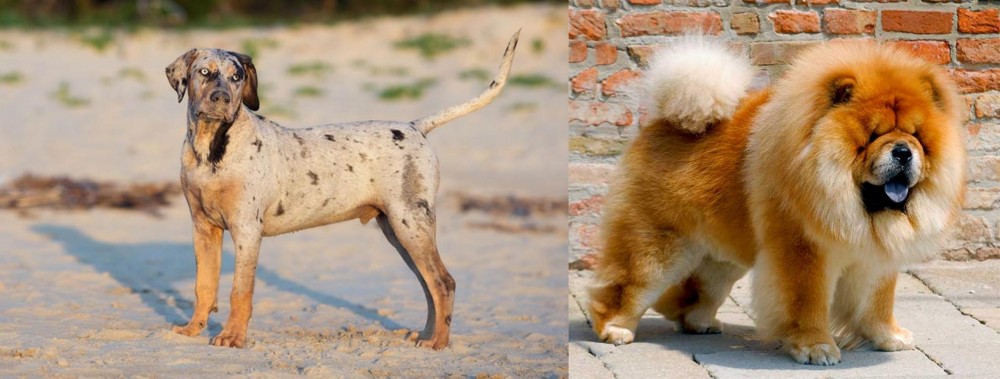 Catahoula Cur is originated from United States but Chow Chow is originated from China. Catahoula Cur may grow 20 cm / 8 inches higher than Chow Chow. Catahoula Cur may weigh 16 kg / 36 pounds more than Chow Chow. Both Catahoula Cur and Chow Chow has almost same life span. Catahoula Cur may have more litter size than Chow Chow. Catahoula Cur requires Low Maintenance. But Chow Chow requires High Maintenance
Catahoula Cur is originated from United States but Chow Chow is originated from China. Catahoula Cur may grow 20 cm / 8 inches higher than Chow Chow. Catahoula Cur may weigh 16 kg / 36 pounds more than Chow Chow. Both Catahoula Cur and Chow Chow has almost same life span. Catahoula Cur may have more litter size than Chow Chow. Catahoula Cur requires Low Maintenance. But Chow Chow requires High Maintenance
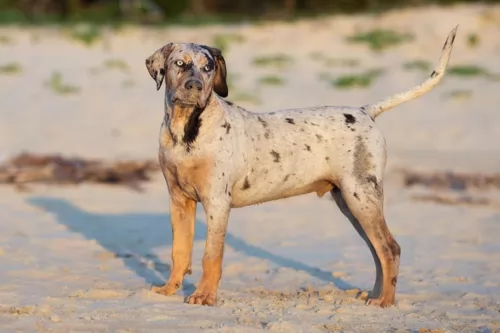 The Catahoula Cur is also known as the Catahoula Leopard Dog or the Louisiana Catahoula. The dog hails from Louisiana, United States.
The Catahoula Cur is also known as the Catahoula Leopard Dog or the Louisiana Catahoula. The dog hails from Louisiana, United States.
It is thought that the Catahoula Cur or Catahoula Hound as it is also known, used to be a hunting dog. The first settlers in Louisiana needed a strong dog to help them with hunting wild hogs and they bred their dogs with other dogs belonging to the locals. This gave them a strong, resilient dog that could take on the wild hogs and also protect their livestock.
Dogs who have no doubt been brought into the mix to produce the Catahoula Cur are mastiffs, Beaucerons, sighthounds and wolves.They are today more commonly referred to as Catahoula Leopard Dogs.
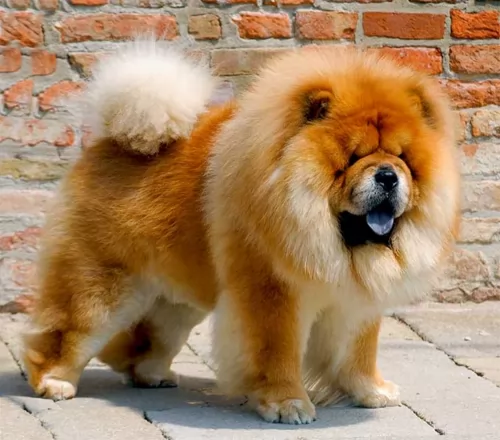 Northern China is the original home of the Chow Chow. In that region of China, the breed was known as the Songshi Quan – “the puffy-lion” dog. They have also been known in China as the “Dog of the Tang Empire” or the Tang Quan. The Chow is believed to be an ancient breed that the Foo Dog, or stone dog guardians of Buddhist palaces and temples, is modeled after. It is one of the most ancient of dog breeds that are still around today.
Northern China is the original home of the Chow Chow. In that region of China, the breed was known as the Songshi Quan – “the puffy-lion” dog. They have also been known in China as the “Dog of the Tang Empire” or the Tang Quan. The Chow is believed to be an ancient breed that the Foo Dog, or stone dog guardians of Buddhist palaces and temples, is modeled after. It is one of the most ancient of dog breeds that are still around today.
It is believed that they have existed for around 2000 years or perhaps even as far back as 3000 years, starting out in Mongolia and migrating to China. The ancientness of the Chow Chow has been validated through DNA testing. In China all those centuries ago, the Chow Chow was born to be a working dog. They hunted, herded, guarded and pulled carts. They went on quests with the Mongolian armies when China was invaded, as well as when the Mongolians invaded the Middle East and Europe later on.
Today’s Canadian Kennel Club has about 350 Chows registered while the AKC gets 10,000 new registrations every year.
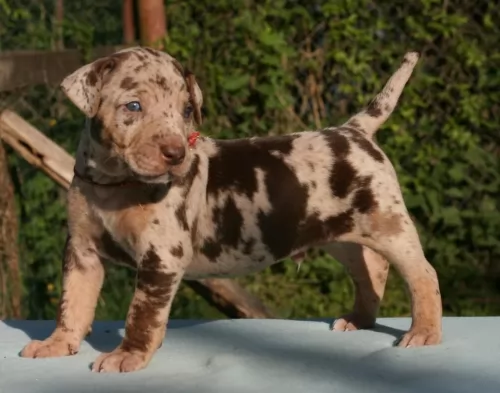 There are varying sizes for Catahoulas and a typical height is 51–66cm and weighing anything from 18 – 51kg. These Cathoula Cur’s come in different colors too, but the leopard-like coat is a dominant feature with this dog.
There are varying sizes for Catahoulas and a typical height is 51–66cm and weighing anything from 18 – 51kg. These Cathoula Cur’s come in different colors too, but the leopard-like coat is a dominant feature with this dog.
While there are solid colors, you can expect red- and blue merle, grey-, black, patchwork and brindle too.
The length of the coat varies somewhat too and while the coat is essentially short and smooth, there are Catahoulas where the coat is a little longer and more coarse.
The eyes of the Catahoula Cur are another interesting feature and both eyes can be the same color, but in some instances the one eye can be brown while the other could be blue, green or gray. The ears of the Catahoula Cur are medium in size and are floppy, dropping down close to the head.
The Catahoula Cur is an intelligent dog and also active and full of sports. You can’t call this dog aggressive, but merely assertive, being strong-willed. He is also affectionate and loyal, loving to spend time with his human family.
He makes a wonderful family pet, complete with children as well as other pets in the home, more so when he has been trained and socialized. These dogs are bright and alert and they also make excellent watch dogs. People who have owned a Catahoula Cur will tell you that these are wonderful pets, full of life and personality.
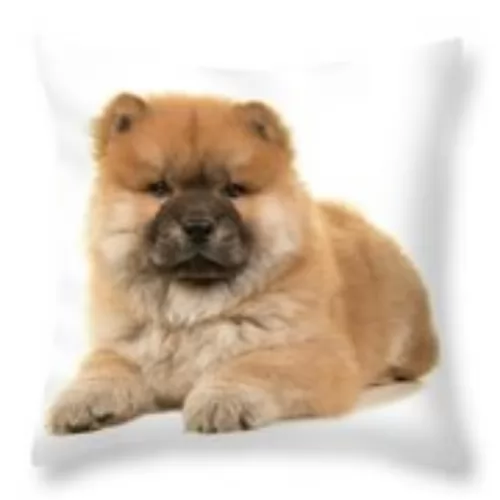 The Chow really does look like a small lion with a black tongue. The dog is sturdy and square with erect, small ears on a broad skull. They have a very dense double coat. Their eyes are deep set and look like almonds, while they all have that very distinctive purple or black tongue. Their lips are also distinctive with their blue color. The nose is black, but some Chows might have a blue nose. The tail is curly.
The Chow really does look like a small lion with a black tongue. The dog is sturdy and square with erect, small ears on a broad skull. They have a very dense double coat. Their eyes are deep set and look like almonds, while they all have that very distinctive purple or black tongue. Their lips are also distinctive with their blue color. The nose is black, but some Chows might have a blue nose. The tail is curly.
These are medium size dogs when it comes to height and weight, but they are powerfully built for their size. Their power is in their compact body holding the energy and strength of a much larger dog. Its hind legs are almost entirely straight, unusual for any dog. They get their lion appearance from the huge ruff that stands behind their heads. Their chest is broad and deep.
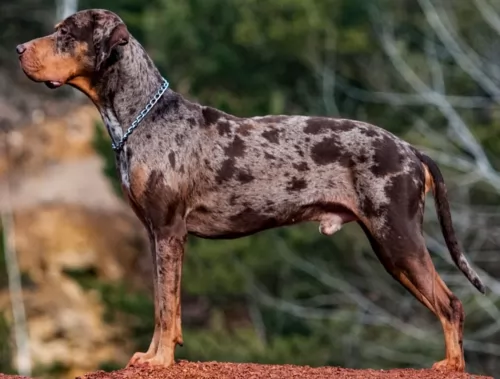 Catahoula dogs are the kind of dogs that make perfect family pets as they are all rounders. They’ve got characteristics that everybody wants in a dog. They are naturally protective, even they are not described as aggressive dogs. With training and socialization they get on well with children as well as other pets in the home. He is alert and territorial, which makes him a good watchdog, more so because he doesn’t particularly like strangers.
Catahoula dogs are the kind of dogs that make perfect family pets as they are all rounders. They’ve got characteristics that everybody wants in a dog. They are naturally protective, even they are not described as aggressive dogs. With training and socialization they get on well with children as well as other pets in the home. He is alert and territorial, which makes him a good watchdog, more so because he doesn’t particularly like strangers.
Intelligent and independent, training makes him wonderfully obedient and relaxed. However, give him the chance for ball games and a walk, and he is more than ready.
He is used to being a guard- and hunting dog, and this makes him an active, energetic dog. You will need to give him plenty of activities if you don’t want this amicable dog becoming anxious, frustrated and destructive.
Exercise him well, provide him with nourishing, top quality food together with fresh water and shower him with the love and attention he deserves as a family member. You’ll also join the ranks of Catahoula Cur owners who want to tell others about what an awesome pet he makes.
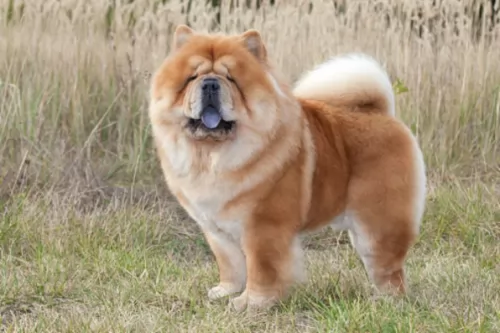 Loyal and true to their family and those they know; the Chow Chow is a little standoffish with strangers. They are very protective and usually attach themselves to one or two people. They are intelligent but stubborn, which can affect your training with them. They need to respect their people and Chows respect hose who take care of them. They can be aggressive toward dogs of their same sex especially if those dogs are the same breed as well.
Loyal and true to their family and those they know; the Chow Chow is a little standoffish with strangers. They are very protective and usually attach themselves to one or two people. They are intelligent but stubborn, which can affect your training with them. They need to respect their people and Chows respect hose who take care of them. They can be aggressive toward dogs of their same sex especially if those dogs are the same breed as well.
They are known to be very clean and many have compared them to cats in that regard. They appear to be dignified and refined. They are usually very quiet but very adaptable dogs.
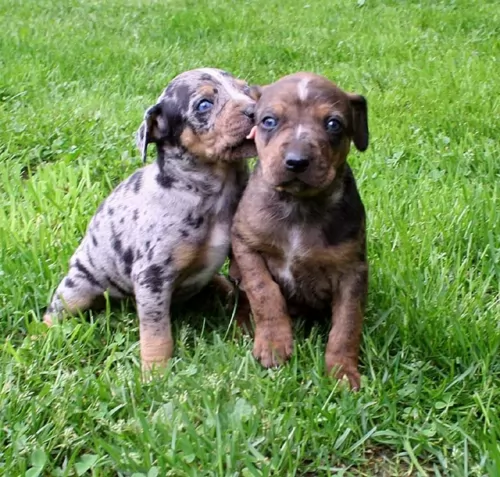 When you buy a Catahoula Cur, you can know that your pet is going to be fairly healthy, however there will be some common health issues to look out for, and by knowing about these health concerns, you can be better prepared.
When you buy a Catahoula Cur, you can know that your pet is going to be fairly healthy, however there will be some common health issues to look out for, and by knowing about these health concerns, you can be better prepared.
Your Catahoula Cur will be susceptible to some bacterial and viral infections which can be life threatening for him if he gets them. Some of these are parvo, distemper and rabies. That is why it is important to have your pet vaccinated, which can start at about 8 weeks of age for a puppy.
Obesity is a world-wide problem with humans and with their pets and it can open up a whole lot of problems with your pet’s health that he otherwise might not have got. It can play havoc with your pet’s digestion, and it can cause joint problems too.
It can be so tempting to pop a sweet treat into your pet’s mouth because you love him so much, but get to know what foods can actually be hazardous for him.
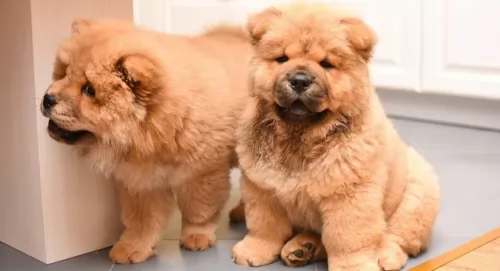 Although an ancient breed that obviously has survived many centuries of trials, the Cho Chow of today is prone to several different health conditions. These include:
Although an ancient breed that obviously has survived many centuries of trials, the Cho Chow of today is prone to several different health conditions. These include:
This condition can require surgery to keep the turning eyelid from injuring the eye ball.
This can cause lameness and arthritis.
This can cause lameness and arthritis.
Make sure you keep the ears clean and keep an eye on them.
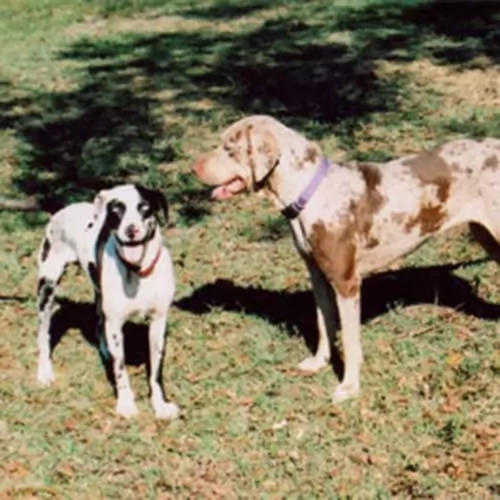 Your Catahoula Cur isn’t a high maintenance dog and a good brushing 2 times a week will keep his leopard coat looking shiny and free of loose hairs.
Your Catahoula Cur isn’t a high maintenance dog and a good brushing 2 times a week will keep his leopard coat looking shiny and free of loose hairs.
Catahoula’s have good teeth, and you want to keep them that way by brushing them at least 2 or 3 times a week to prevent dental decay and a host of other medical issues.
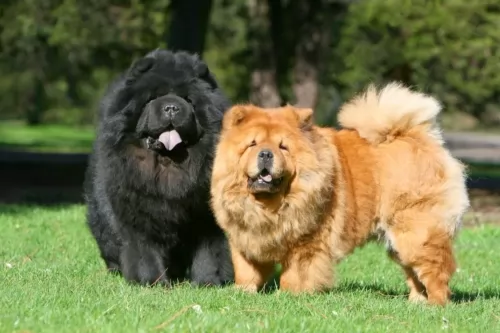 Don’t overfeed a Chow Chow as they are hard workers and big eaters. Feed them at least twice a day.
Don’t overfeed a Chow Chow as they are hard workers and big eaters. Feed them at least twice a day.
This eye disease can lead to blindness if not checked and treated.
These can be removed from an adolescent puppy.
Again, the Chow is susceptible to cancer.
Can lead to heart or kidney problems if left untreated.
Keep a close eye on your Chow Chow skin.
The Chow Chow was developed as working dog, but today’s version is more laid back and doesn’t need excessive exercise. Daily walks will suffice. They live very happily in the city if walked regularly. They are not really a competitive breed outside of obedience and confirmation. They are seldom seen in sports like agility or frisbee.